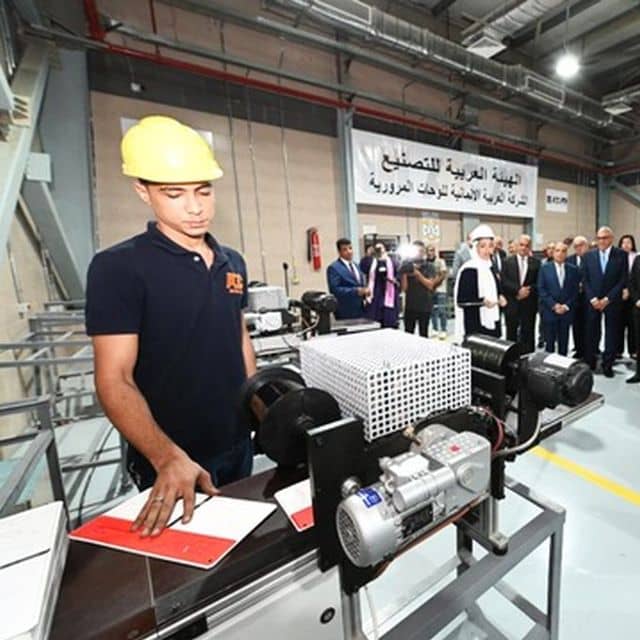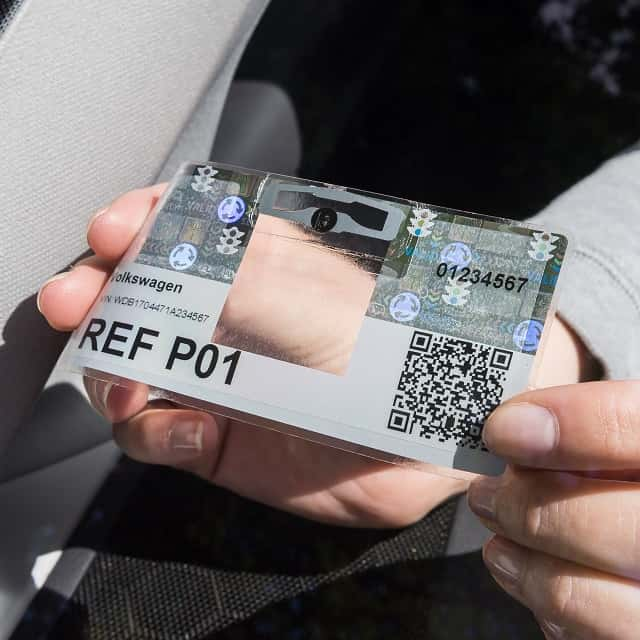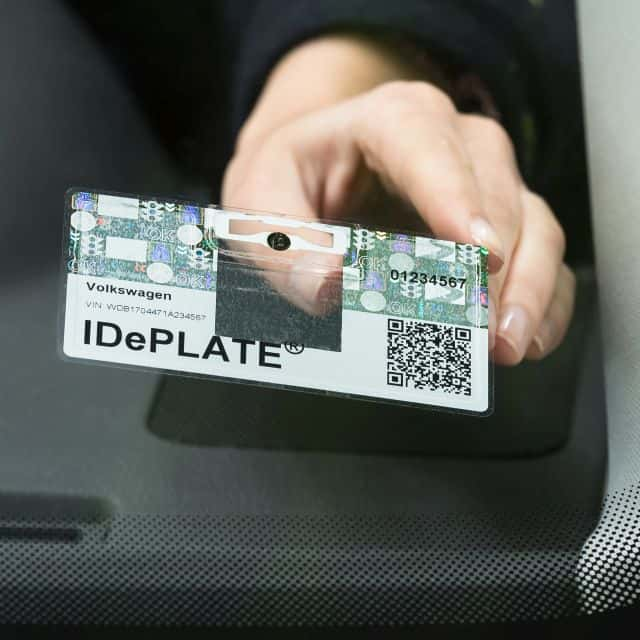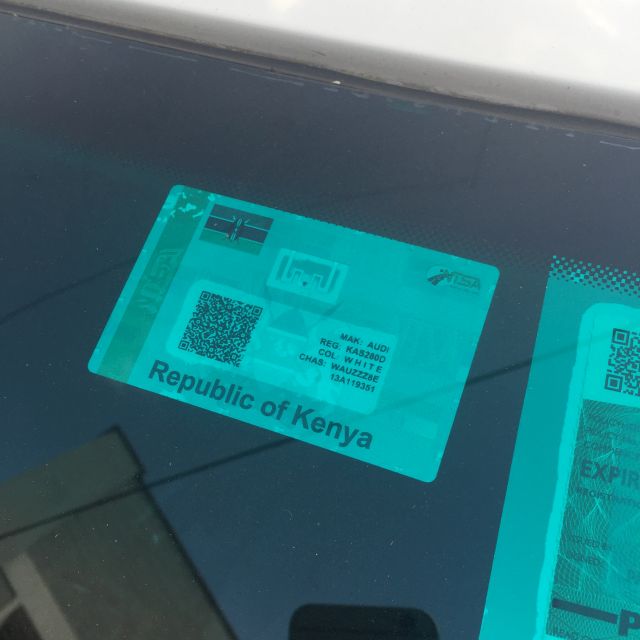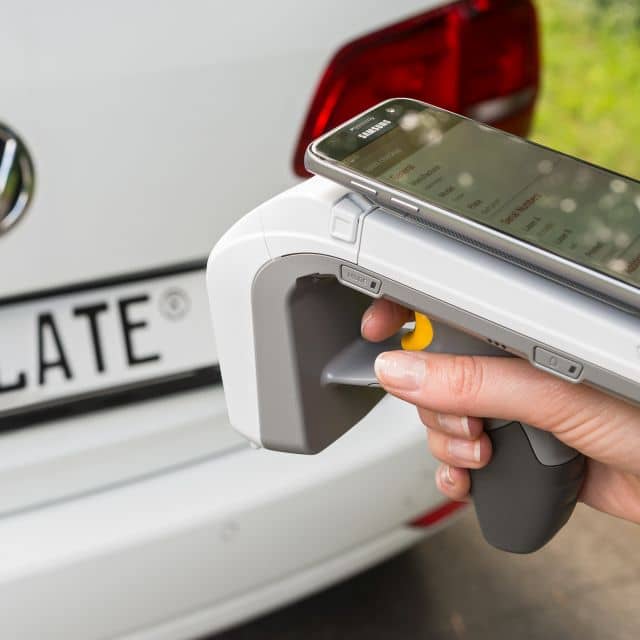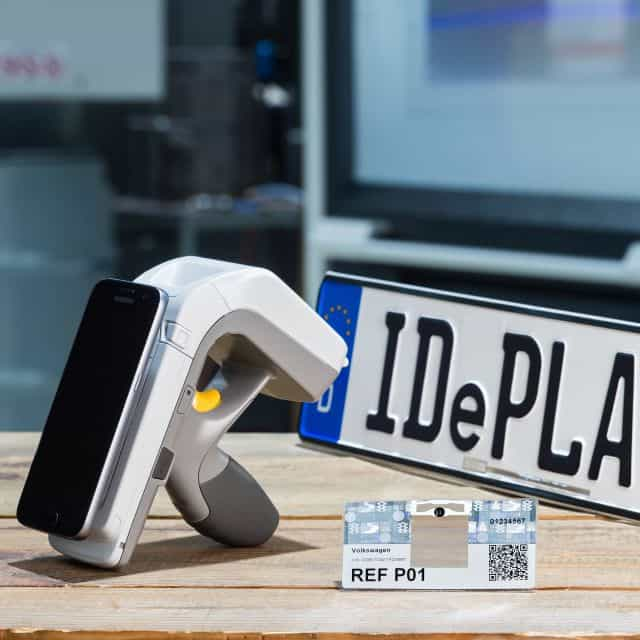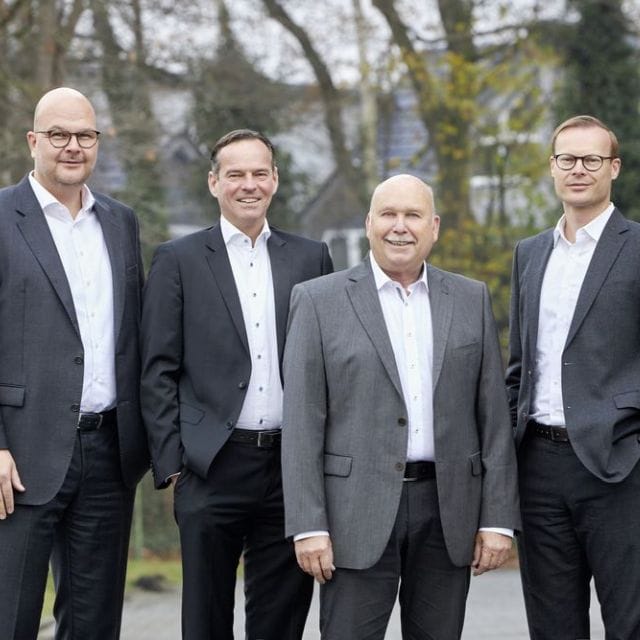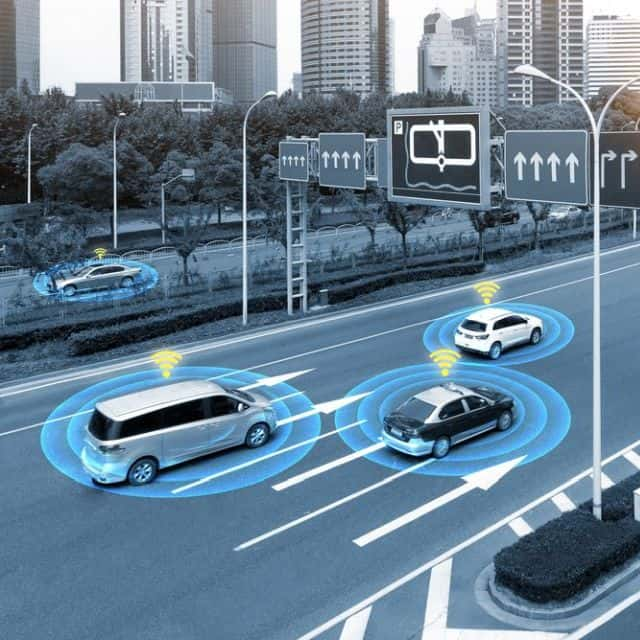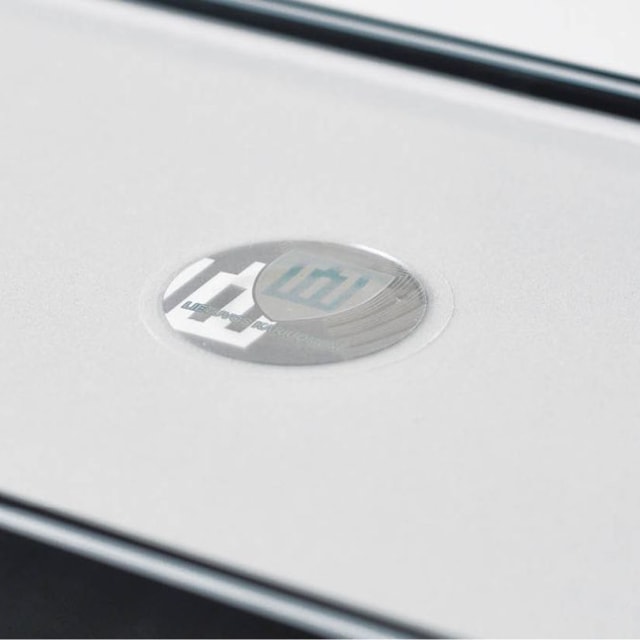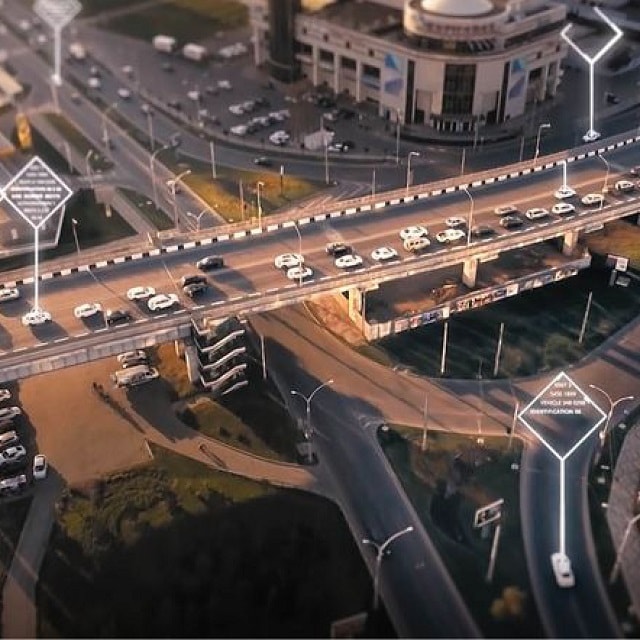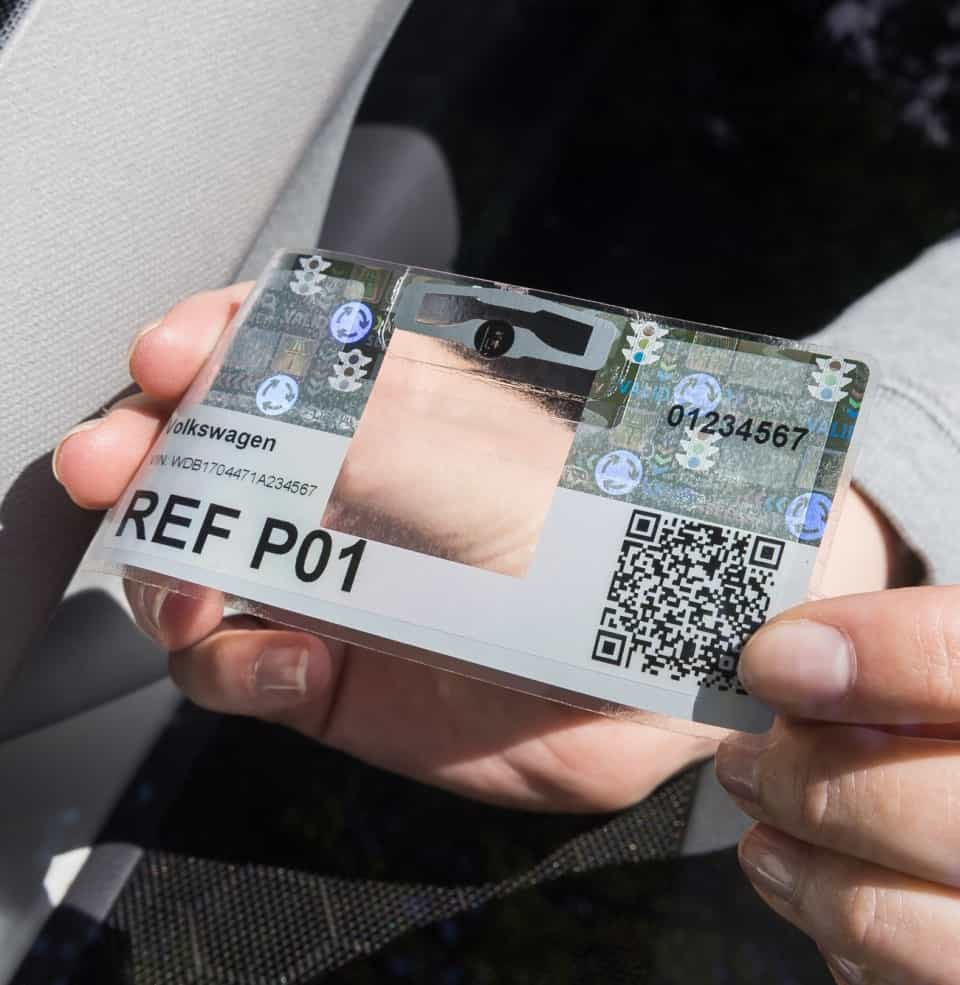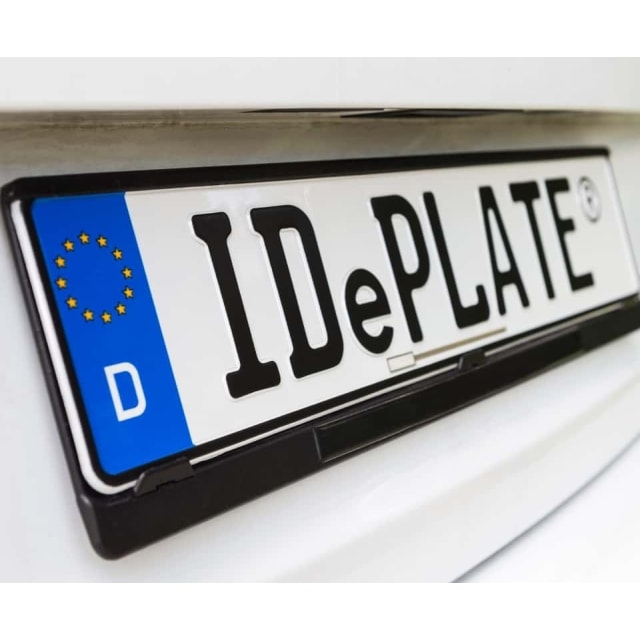TÖNNJES, Kathrein and NXP Enable the Electronic Identification of Vehicles
- Electronic vehicle identification (EVI) is paving the way for the digitalisation of vehicle recognition
- It can be used for a variety of purposes: traffic management, toll collection systems and theft prevention
- RFID tags and vignettes already in global use
- New technology for the identification of motorised two-wheelers
The German licence plate manufacturer TÖNNJES pursues the goal of giving vehicles around the world a clear identity. In collaboration with the global company for semiconductors, NXP, and the Bavarian company for AutoID solutions, Kathrein Solutions GmbH, it develops and manufactures plates and vignettes on the basis of RAIN RFID technology – with a focus on electronic vehicle identification, EVI for short.
Cars, lorries and motorbikes can thus be identified contact-free and in moving traffic using authorised readers. The innovative technology has overtaken the previous method of optical recognition with the naked eye or by camera. It also opens up new digital possibilities for the traffic and mobility of tomorrow.
Larger Cities, More Cars
Shenzhen is what is known as a megacity in southern China. The city, which is home to twelve million people, lies right on the Hong Kong border. By 2030, its population is set to grow by a further 17 per cent – much faster than any other city in East Asia. Where there were just 30,000 residents around 40 years ago, there are now 3.5 million cars on the roads today.
With over 500 cars per kilometre of road, Shenzhen has the highest density of automobiles in the whole of China. Perhaps unsurprisingly, traffic jams are virtually paralysing public life. As a result, the city is working intensively on an intelligent traffic management system. Although AI-controlled traffic lights expand the sphere of action of the authorities, a definitive solution for the huge volume of traffic is not yet in sight.
EVI Can Revolutionise Traffic
“The global population is growing continuously. It is not only megacities with over ten million inhabitants that need to concern themselves with alternative solutions to handle complex, modern traffic management – all cities will need to do this sooner or later,” explains Jochen Betz, the Managing Director at TÖNNJES.
“We believe that electronic vehicle identification, EVI, represents the basis for smart city applications as it enables efficient and contemporary identification processes.”
RAIN RFID technology enables wireless communication between vehicle licence plates on the one side and authorised readers on the other. Alongside targeted traffic management, EVI also offers the potential of revolutionising access control and toll collection systems, implementing environmental zones, modernising payment processes relating to bridge and ferry crossings and sustainably protecting against vehicle theft and licence plate forgery.
For several years, TÖNNJES has not only been a successful manufacturer of vehicle licence plates but has also played a leading role in developing the software and hardware that are a key prerequisite for electronic vehicle identification. TÖNNJES produces the RFID licence plate IDePLATE and the windscreen sticker IDeSTIX in collaboration with the Bavarian RAIN RFID hardware manufacturer Kathrein Solutions and the global company for semiconductors NXP. The technology has already proven of use in various countries in a range of different applications.
The Saudi Arabian oil company Saudi Aramco uses IDeSTIX for access control on its business premises. And, in the Philippines, scooters and motorbikes are equipped with the IDeSTIX headlamp tag from TÖNNJES – an RFID vignette for the front headlamp. “Scooters and motorbikes are an extremely popular means of transport, especially in Asia. The IDeSTIX headlamp tag is an efficient and reliable method of registering and identifying all these vehicles,” explains Betz.
Flexible and User-Friendly: Passive Chips Operate in Stationary and Moving Traffic
Both, the forgery-proof licence plates and the stickers, which are destroyed when removed, are equipped with a specially manufactured passive RAIN RFID chip, the UcodeDNA® from NXP. This transfers data over several metres in a contactless and secure way. The chip contains a unique, encrypted identification number which can be decoded by authorised readers in stationary and moving traffic.
“Every country should strive for the nationwide registration of all vehicles as it guarantees safety and transparency. If vehicles are registered for the first time with passive UHF RFID transponders, this technology can also be used for further applications such as toll collection, road charging, parking, filling up and access controls,” explains Christian Schnebinger, Deputy Sales Officer at Kathrein.
“Passive UHF RFID is a global standard. It creates flexibility and is also user-friendly. The battery-free transponder does away with the need for any maintenance,” he adds.
The growing significance of electronic vehicle identification in the future is not only apparent in the close collaboration between the three market leaders. Current statistics from the German Federal Office for Goods Transport (BAG) also highlight the high importance of EVI with regard to motorways. The freight transport volume on the roads in Germany alone is estimated to be around four billion tonnes by 2023. By way of comparison: it was just 3.4 billion tonnes ten years ago. According to BAG, the coronavirus pandemic is also having a direct effect on lorry mileage. It has increased by 5.5 per cent in Germany since the start of the pandemic – presumably due to the increase in delivery traffic.
RFID Technology is the Key to Digitalisation
“With our technology and combined expertise, we are helping authorities and registration offices to work much more efficiently in the future,” explains Ralf Kodritsch at NXP.
In his opinion, the use of RFID-based technologies also forms the ideal basis to comprehensively and quickly digitalise the entire field of vehicle identification.
“The discussion often mentions essential key areas such as public safety or theft prevention, which enjoy high priority in our considerations. However, end users could also see tangible benefits – for example automatic access when parking or automated processes for filling up by reading the RFID tag,” explains Kodritsch.
In addition, electronic recording could also represent a significant improvement in the status quo in view of the “urgently needed” digitalisation. Visibility and weather conditions have so far played a crucial role in optical recording and significantly reduce the rate of prosecution in cases of speeding, for instance.
A Global Network
TÖNNJES operates internationally. And not as an exporter of products but of infrastructure, machines and expertise. Around the globe, the company from northern Germany is involved in local joint ventures in over 50 locations in order to produce and personalise vehicle licence plates on site. In doing so, the company supports the respective authorities from the implementation of a central approval system to the development of innovative and customised solutions for vehicle identification. More and more countries are showing an interest in electronic vehicle identification.
“We have noticed that solutions are now required which not only work reliably but also meet the requirements of a digitalised society – we create both,” says Jochen Betz.




